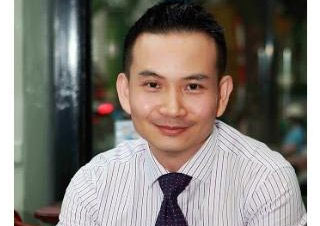AEC to boost C-Suite employment
 The AEC, due to be established by the end of the year, will encourage trade and attract investment into the region. Do you think this will open up a great deal more opportunities for important senior executive positions in the region and in Vietnam, specifically?
The AEC, due to be established by the end of the year, will encourage trade and attract investment into the region. Do you think this will open up a great deal more opportunities for important senior executive positions in the region and in Vietnam, specifically?
Important top executive or C-Suite executive jobs focus on positions with a base salary of at least $200,000 a year, operating at a global, regional or local level.
Once the AEC is established, the market will definitely need more talents as the scope of businesses will no longer be limited to just a single country. The market will then need to recruit high-skilled candidates from anywhere in the world, be it the US, UK, Canada, Europe or regional localities.
To the best of my knowledge, many foreign companies are currently considering seeking, and even promoting, more local C-level candidates. Vietnam, in particular, has employed local CEOs, for instance, at banks like HSBC (Vietnam) and ANZ (Vietnam) or healthcare companies like GlaxoSmithKline and Menarini Asia-Pacific.
What are the key industries that will be in need of new C-Suite executives?
All industries, in fact. Our C-Suite Executive Search Team has received some 352 enquiries from Southeast Asian companies seeking to fill their top senior executive positions. Approximately 50 per cent of them come from the finance and banking sector while 20 per cent each arrive from the fast moving consumer good (FMCG) and pharmaceutical and cosmetics sectors.
One interesting point I would like to note here is that female top executive candidates have been on a staggering rise in the AEC market ever since 2011.
The organisational structure of many companies, as we have noticed, has been rearranged to suit the integrated economy where one chief executive officer, general director or general manager could cover the workload in more than one country. The (competences) skill set of the top position, as such, is needed to be significantly extended to suit the larger-scale of operations.
The development of an integrated capital market in the AEC will enable the free flow of capital within the region, and should mould the ASEAN into an asset class for international investors. Will this attract a lot of foreign C-Suite executives to fill up emerging top positions in larger-scale enterprises forming across the ASEAN?
When the market gets bigger, business strategy ought to be reshuffled, along with organisational structure, financial system and human resources. Regional and international boundaries will cease to exist, and so will the differentiation between expatriate and local talents.
Opportunities will be opened up for both local and foreign candidates alike to fill up important executive positions. And so potential candidates of the C-suite must prepare for the changes and challenges presented by a multi-cultural workplace, leadership style and lots of travel working.
In return, they can receive a significant salary package from $200,000 to millions of dollars, plus bonuses.
What are the biggest challenges for C-Suite executives in the AEC market and enterprises who are searching for them?
The difference in the standard of living, working style and skill level of employees in each of the AEC countries is one of the biggest challenges that C-suite executives have to adapt to in general. In addition, dissimilar regulations pose another challenge that a C-suite executive will have to measure up to.
These challenges, nevertheless, will require strong team support in each country and a regional business approach combined with a thorough understanding of the local market trends and needs to rectify the issues.
As for enterprises which are searching for suitable C-level executives, it could come down to the relocation issue, where they might find appropriate candidates from some of the Western countries, yet they may not be willing to relocate to one of the 10 AEC countries to work.
As this is often the case, local and regional companies ought to establish recruitment teams in search for C-level candidates specifically or simply outsource the hard work to a professional recruitment consulting firm. Yahoo CEO Marissa Mayer, for instance, was recruited via a C-suite executive search firm despite the company having its own recruitment team.
What the stars mean:
★ Poor ★ ★ Promising ★★★ Good ★★★★ Very good ★★★★★ Exceptional
Latest News
More News
- Cashless payments hit 28 times GDP in 2025 (February 04, 2026 | 18:09)
- SSIAM and DBJ launch Japan Vietnam Capital Fund (February 04, 2026 | 15:57)
- Banks target stronger profits, credit growth in 2026 (February 04, 2026 | 15:43)
- Vietnam on path to investment-grade rating (February 03, 2026 | 13:07)
- Consumer finance sector posts sharp profit growth (February 03, 2026 | 13:05)
- Insurance market building the next chapter of protection (February 02, 2026 | 11:16)
- NAB Innovation Centre underscores Vietnam’s appeal for tech investment (January 30, 2026 | 11:16)
- Vietnam strengthens public debt management with World Bank and IMF (January 30, 2026 | 11:00)
- Corporate bond market poised for stronger growth cycle (January 28, 2026 | 17:13)
- Vietnam's IPO market on recovery trajectory (January 28, 2026 | 17:04)
















 Mobile Version
Mobile Version